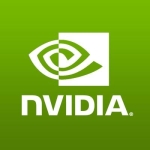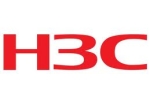What is our primary use case?
We have a few different buildings within our premises, and we typically use the Cisco switches as the core backbone of our LAN. They are connected with fiber. We use them for our network to handle security and connectivity mainly.
Our core business is to sell beverages, so we're not your typical telecom or banking institution that would be a typical Cisco client.
What is most valuable?
The quality of service is one of the main reasons we use Cisco in our organization. It's quite high and very reliable. The switches also end up working for a long time, so there's less need to replace them as often as others. We have some switches in our company that have been running since 2006, for example. They are quite old, but they still work.
The security and the user interface are both good. Mainly, I end up using the command lines, but it's okay for me and the way I work. It's my preference, although it's not ideal for everyone.
There are quite a few features that Cisco offers, but for our business, it's not really necessary. If you are a telecom or a banking institution, you would probably find them to be quite useful.
What needs improvement?
The cost is very prohibitive both for us as well as other organizations. It's very expensive to buy Cisco switches. Among our colleagues, we find that we're not alone in thinking it's too high. Everyone's complaining about this.
We have many switches that we've used sine 2006 and that are on the old OS, but we don't want to switch them out because the cost to do so would be quite high.
The graphical user interface could be a bit better. When we have new employees, we want them to onboard quickly and to be able to understand the switches. Having a better graphical interface would help us do that and help them understand the switches faster. While I prefer command line, many are not good with it or do not prefer that method.
For how long have I used the solution?
We've been using the solution since 2006. It's been more than ten years, so we're quite well versed in the technology.
What do I think about the stability of the solution?
The solution is quite stable. Cisco is a brand that's known for its stability. Our switches have worked for well over 10 years in some cases, without fail.
How are customer service and technical support?
We never really directly deal with Cisco, so I can't speak to how well they are from a customer service perspective.
How was the initial setup?
We moved from a different type of switch originally. We found switching over was quite straightforward and didn't run into any difficulties. However, now our office and our infrastructure are much more complex, so there is a bit of a learning curve. Companies with complex infrastructures will find that there will be complexity in the setup. They'll have to sort through that when they get started.
Originally, when our offices were smaller and more straightforward, deployment didn't take to much time. We handled it over a weekend, from Friday to Sunday or Monday. However, at the time, we weren't yet doing segmentation traffic.
What about the implementation team?
We had a consultant in Belgium who came in over the weekend to help us with the process when we originally set up the switches. Normally we work within our own team and have our own in-house workers that handle the configuration.
What's my experience with pricing, setup cost, and licensing?
I don't handle the licensing aspect of the solution, so I can't speak to the exact pricing. However, I am aware it's one of the more expensive options on the market. The last time I bought a 24-port switch, which was a while ago, I paid about five or six thousand Euros. In this part of the world, that's quite expensive for us.
Which other solutions did I evaluate?
I did compare Cisco to Ubiquiti. I was doing this research for a friend who was trying to open a resort but had limited funding. He didn't want to deal with Cisco as he knew the pricing would be out of his budget, so he asked me to look into another option. He asked that I look at Ubiquiti. For him, Ubiquiti ended up being a good option and was quite affordable. I believe you can also use Ubiquiti at an enterprise level as well.
What other advice do I have?
We mainly work with Cisco ethernet switches at our organization.
Aside from the cost, the Cisco switches are quite stable and easy to use.
If you have the money as an organization, I would highly recommend Cisco.
We are just a customer of Cisco. We don't have a special relationship with the company in any way shape or form.
I would rate the solution 8.5 out of ten. I would rate it higher, but the price is too high, in my opinion. It's quite good for me in terms of the usage I get out of it, but I find that I don't use other features that Cisco offers now.
Which deployment model are you using for this solution?
On-premises
Disclosure: I am a real user, and this review is based on my own experience and opinions.


















